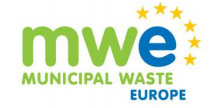Plastics have formed a key component of our 21st century economy and now constitute a major environmental problem. Plastic waste causes difficulties to resource and waste management as there are problems with lifespan, repairability, reusability and recyclability which need to be addressed, particularly with packaging, due to the diversity in plastic packaging materials and the number of plastic packages entering the waste stream on a daily basis. This puts a strain on collection systems and in countries without effective waste collection and treatment this plastic packaging all too easily becomes land and marine litter. In effect, plastic packaging in such a situation, even if technically recyclable, is not effectively recyclable because it does not reach a recycling plant. Other products such as synthetic textiles which lose microfibers in the wash, microbeads, oxo-degradable plastics, should be phased out as they have viable alternatives which do not create environmental damage.
Actions needed to rectify the problems:
1. Effective Separate Collection of packaging. Municipal Waste Europe worked hard, together with fellow stakeholders, to develop and achieve a strong, transparent and goal-oriented framework for Extended Producer Responsibility within the revised Waste Framework Directive. Only through clear roles and full cost coverage by EPR will separate collection attract the necessary investment to achieve clean, recyclable streams. EPR can also be implemented using deposit refund schemes or combined with them in accordance with national preference.
2. All Plastic should be designed for recycling. Currently there are 27 base polymers on the market with infinite combinations and variations thereof, most of which are used in single use products. This variety of polymers and their daily entry into the waste stream is the most expensive aspect of collection, sorting and recycling for municipalities. MWE proposes a limitation of polymer types used in fast moving consumer goods and that all polymers used for such products should be designed for cost-effective sorting and recycling.

4. Definition of Biodegradable Plastic. There are so many different uses of the term biodegradable plastic currently that the waste treatment experts do not know which, if any treatment method is suitable for different plastic products which have been labelled as biodegradable. Before this term can be further used in practice, a clear definition must be established and implemented.
5. Recycled Content. Municipal Waste Europe supports the use of minimum recycled content as a requirement for new plastic products as a way of promoting recycling and reducing the use of primary raw materials.
6. Subsidies. While subsidies still exist on fossil fuels rendering virgin plastics cheaper than recycled plastics, the latter will always be at a competitive disadvantage. This therefore is the first economic barrier which needs to be removed.
7. Innovation. New sorting and recycling procedures are being developed at a very rapid rate, including depolymerisation which would allow those plastics to be recycled or indeed reassembled into new polymers indefinitely. Therefore, although the number of recycling loops is low currently, perhaps 6 loops for PET, new techniques can change that in the near future.
8. Non-packaging items: toys, textiles, other household items. The municipal waste stream also contains many nonpackaging plastics which today are addressed under the general title of ‘plastics’ in the Waste Framework Directive with a 50% recycling target. However, many Member States do not have collection and recycling schemes for such plastic waste as more focus is given to those plastics covered by Extended Producer Responsibility Schemes. As a result they often end up in landfill as part of residual waste or even as marine litter. Some of the hard plastics already have a market for recycling and this should be further promoted. Future action on plastics should require that these items are recyclable.
9. Repair and Reuse. The plastics strategy should focus on facilitating collection for repair and reuse of relevant waste products and on removing barriers to this process where they exist. Either in European or in national legislation.
10. EU Funding. European Funding, whether grants or loans or a combination thereof, should take great care to support innovation in ecodesign to ensure the recyclability of the next generation of plastic products, innovation in recycling, implementation of new recycling plants in Europe to absorb the large quantities of plastic waste no longer imported by China, investment in new sorting techniques and transformation of less performing techniques and investment in effective collection methodologies.
11. Municipal Waste Europe will be working closely with all of its member municipalities as well as other European municipalities to assist them to implement the above as well as the new requirements of the revised Waste Framework Directive. We will be very pleased to work alongside the Commission services to progress the changes needed both to prevent further environmental degradation and to effect a circular and stable economy.
12. Energy recovery preferable to landfilling plastics. In today’s waste stream, very few plastic polymers are recyclable and truly recycled. This high energy containing waste is lost to the European economy in a landfill and would be better used for energy recovery in a waste to energy plant. In the numerous European cases where landfills are uncovered, energy recovery rather than landfilling will also remove the possibility of these plastics becoming land and marine litter.
Source: Expra Newsletter
Detaylı bilgi: https://www.municipalwasteeurope.eu/position/eu-strategy-plastics-circular-economy

